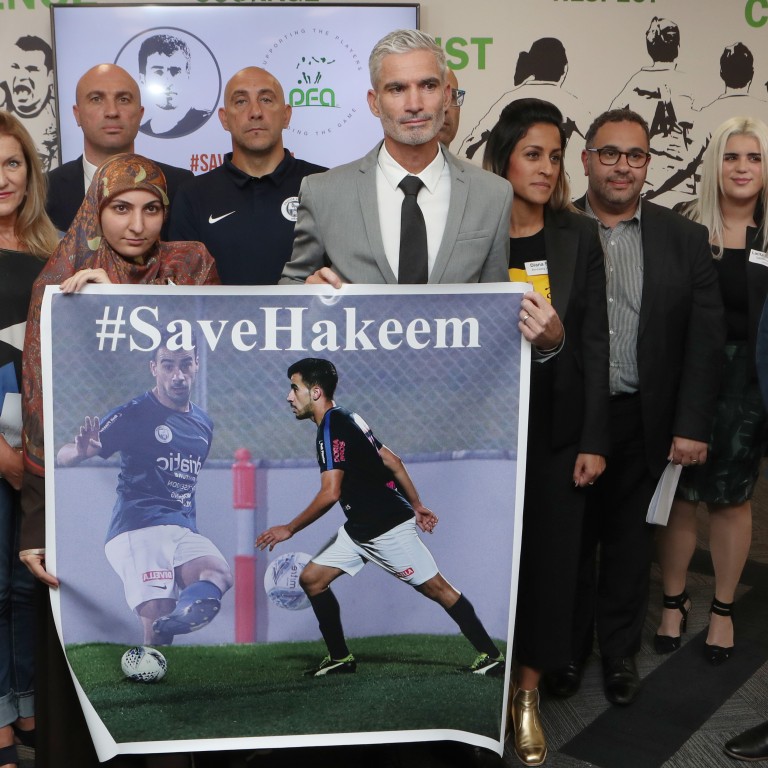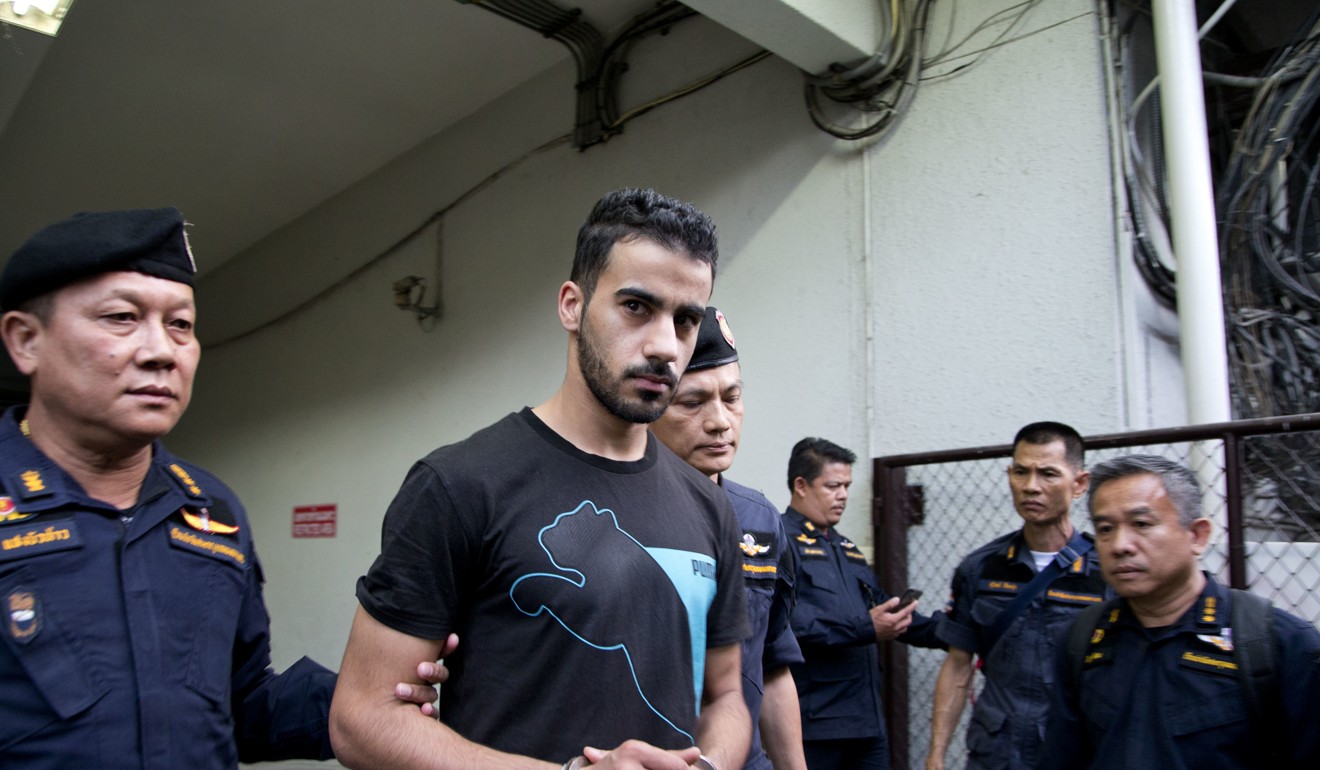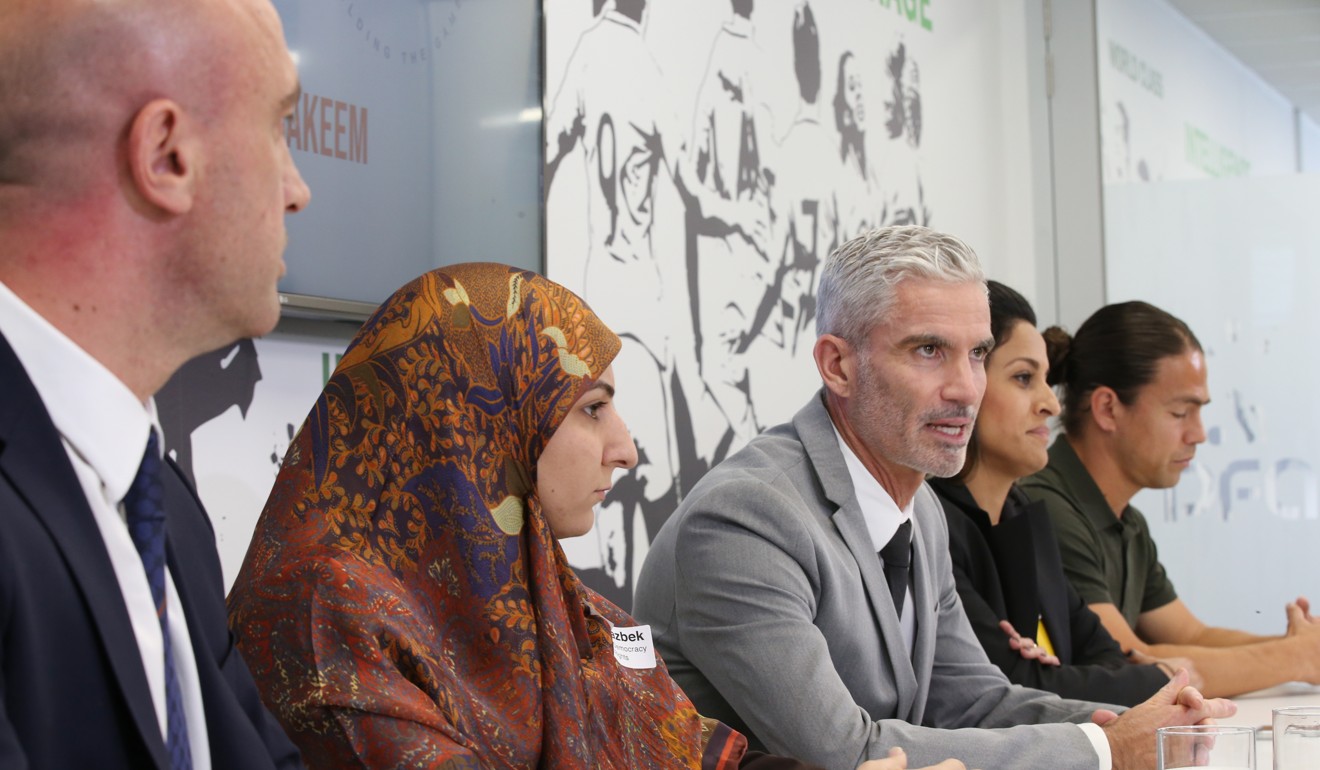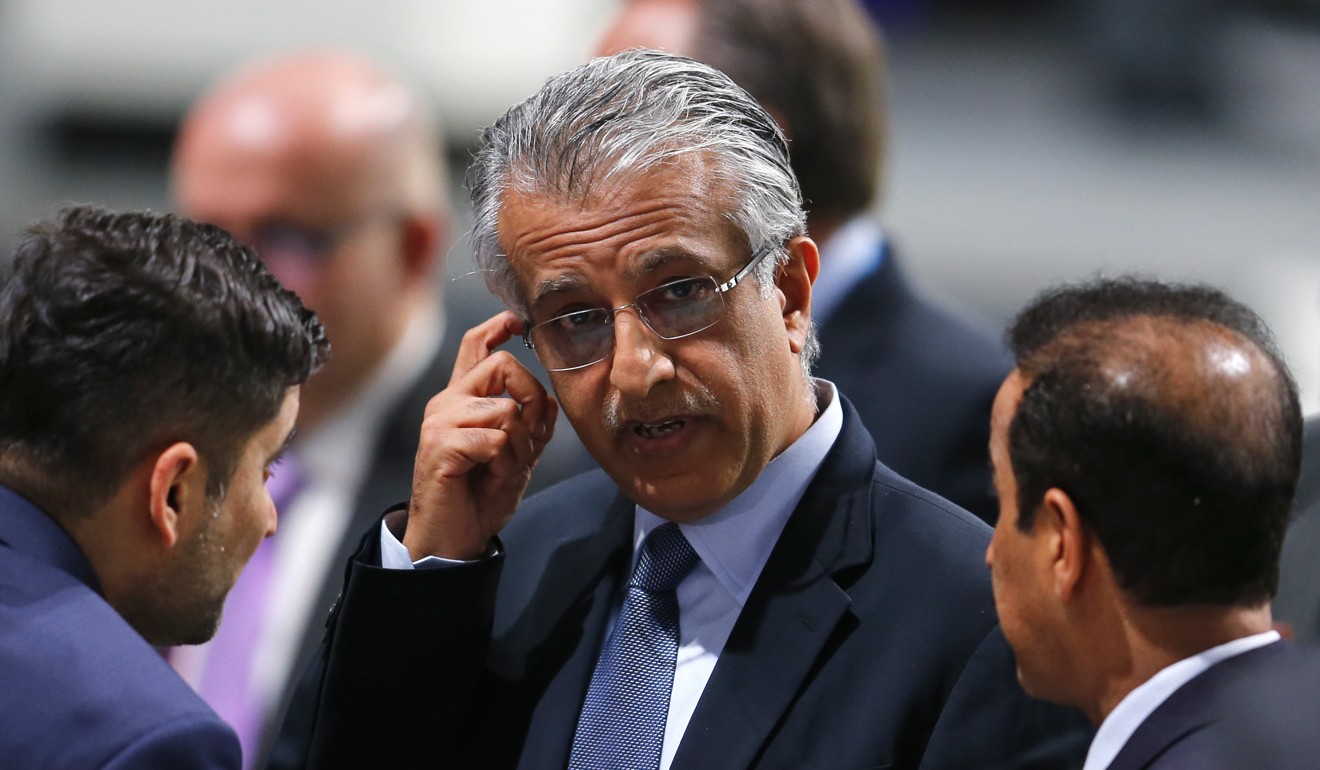
AFC ‘working with Fifa’ on case of Bahraini refugee footballer held in Thailand as ex-Hong Kong player demands his release
- Hakeem al-Araibi once criticised AFC president and Bahrain royal family member Sheikh Salman, who is now being ask to help in his release
- Ex-Australia captain Craig Foster, who once played in Hong Kong, is demanding action by AFC
The Asian Football Confederation has broken its silence on the plight of Australia-based Bahrain footballer Hakeem al-Araibi, who is being held in Thailand awaiting extradition to a country where he fears torture and persecution.
Al-Araibi publicly criticised AFC President Sheikh Salman Bin Ebrahim Al-Khalifa – also a member of the Bahrain royal family – in 2016.
Now, his supporters – led by former Hong Kong-based player Craig Foster – are relying on the man Al-Araibi accused of being part of a crackdown on athletes during the Arab spring to give him his freedom.
World governing body Fifa called for Al-Araibi’s release on December 7 and it appears that the AFC is working behind the scenes on the case.
When asked by the South China Morning Post if it would respond to a letter Foster wrote to Sheikh Salman, the AFC said in a short statement: “We are working with Fifa and FAT [Football Association of Thailand] on this issue.” The confederation gave no further details.
Al-Araibi, 25, fled Bahrain in 2014 and sought asylum in Australia, where he lives and plays for Pascoe Vale Football Club. He is accused by Bahrain of vandalism and was arrested by Thai authorities based on a red notice by Interpol on November 27 when he travelled there on a holiday. He denies the charge.
Ex-Socceroos captain Foster, who played for now-defunct Ernest Borel in Hong Kong from 1992-93, has since become a well-known football commentator and advocate for human rights in Australia.
Foster, as a “concerned member of the Australian football family”, wrote to Sheikh Salman on December 17 saying: “I hereby express my concern that Hakeem is not being provided public support and advocacy by the AFC, and extremely worried about his well-being if extradited to Bahrain and expect AFC to publicly support and advocate for his return to Australia as internationally recognised human rights law stipulated [in Fifa and AFC statutes].”

Al-Araibi’s supporters, according to Australian media, say the defender faces the threat of prison and torture should he be extradited to Bahrain.
Before the AFC’s Monday statement, Foster had hit out at the body for remaining silent on the issue and backed the #SaveHakeem social media campaign urging the public to write directly to the confederation’s president.
“Despite a public statement by Fifa calling for the release of al-Araibi, one organisation is conspicuous by the absence of its public support, the Asian Football Confederation,” Foster wrote in an article on the website of Australian broadcaster SBS.
“This is an important test case regarding football governance globally.”
Foster said the post of AFC president involves more than simply running football, but protecting the rights of those under his jurisdiction. He urged Sheikh Salman to overlook any personal issues he has with Al-Araibi.

“Rising to high office within football in past decades brought little obligation to uphold, or even be seen to uphold human rights, and a blind eye could be turned by those in power to transgressions whether in their own country, their member federations or within global football operations,” Foster wrote.
“That has now changed, where every office bearer within football is duty bound to uphold the obligations imposed by Fifa in May, 2017 [on protecting human rights].
“This poses a new challenge for many, including the current AFC president and member of the Bahrain royal family, Sheikh Salman bin Ebrahim Al Khalifa – who is at the centre of the seminal case.
“The AFC President has personal history with Hakeem in his former role as president of the Bahrain FA, where Hakeem was publicly critical of the Sheikh’s alleged role in a crackdown on athletes during the ‘Arab spring’ in 2011.
“He is also part of the Bahrain Royal family, which leaves many of us deeply concerned that this political and personal context may override the obligations of the office. And a 25-year-old refugee’s life is in the balance.”
Foster also called on Sheikh Salman to resign if he is unable to “fulfil his obligation” to the Fifa and AFC statutes.
“A fundamental principle of international human rights law is the non-refoulement (forcible return) of refugees to a country from which they have sought asylum under both the UN Convention on the Status of Refugees 1951 and the UN Convention against Torture, and other Cruel, Inhuman or Degrading Treatment or Punishment 1987.
“The new obligations will potentially cause conflicts between office bearers from the AFC and government officials on human rights policy. Such is the case for Sheikh Salman. His own Bahraini Government is seeking extradition of Hakeem contrary to the international law that he must uphold.”

“Managing this conflict would mean one of two things. Either publicly endorsing Fifa’s stance, issuing a statement supporting Hakeem and advocating for the Bahrain government to withdraw their extradition request, or resigning from the position if unable to do so.
“It is his choice, but the choice must be made.”

